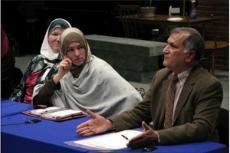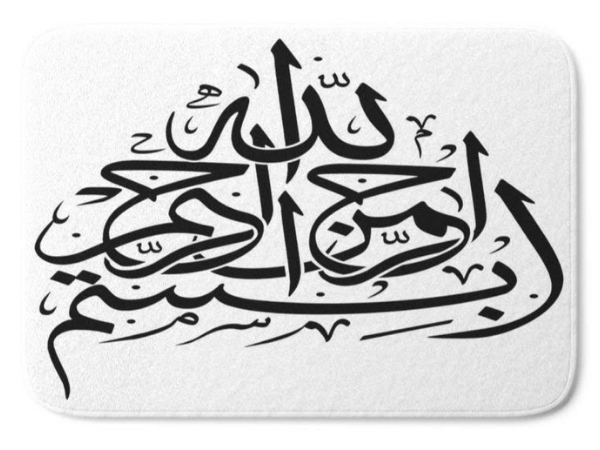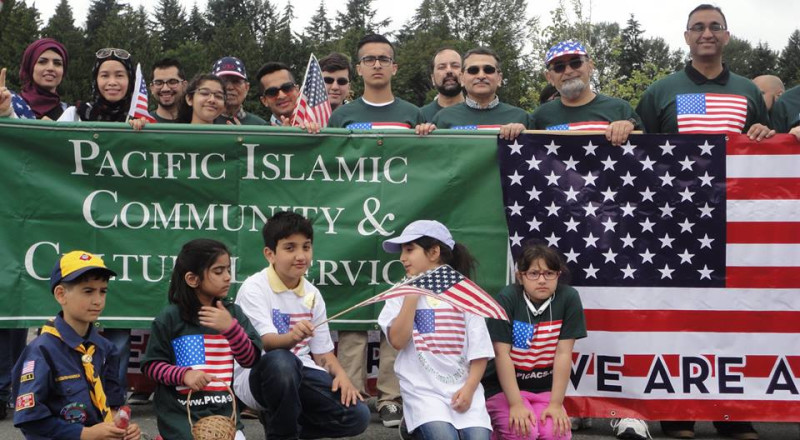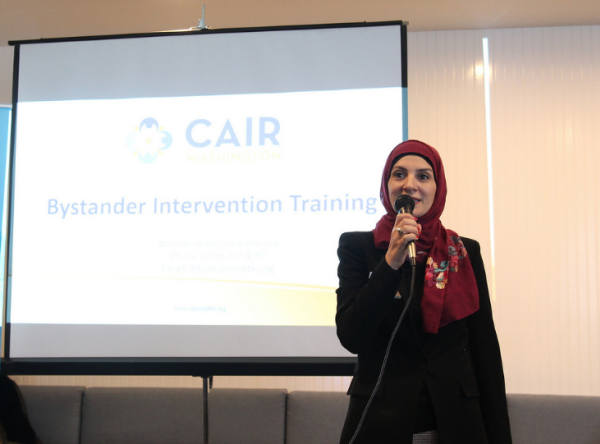
On January 20, 2011 a panel of five local Muslims spoke at Everett Community College (EvCC) as part of the "Muslims in America" lecture series which began this fall and will conclude at the end of this educational year. The panel itself, coordinated by CAIR-WA, was asked to answer the question, "What does it mean to be a Muslim in America?"
The event was attended by over 100 persons in the auditorium and another 50 in an overflow room, and was covered by at least two local media outlets.
Click here to read The Everett Herald's coverage of event.
Click here to read The Clipper's coverage of event.
As CAIR-WA Staff, including Community Outreach Coordinator Abigail Stahl, Executive Director Arsalan Bukhari, and Civil Rights Coordinator Jennifer Gist, along with Tacoma School of the Arts Intern Jacob Glickman arrived, tensions were high on campus. "Act! For America", an anti-Muslim hate group, had gotten word of the event and bombarded EvCC with (mostly out of state) phone calls, emails, letters, and Facebook posts asking the College to cancel CAIR's panelists. According to those familiar with the incoming comments, many of these comments contained profanities, racist overtones and conspiracy theories of Muslims "taking over" America. Nonetheless, CAIR-WA presented as planned, but under pressure from Act! EvCC plans to host another speaker, Raymond Ibrahim of the Middle East Forum, a notoriously anti-Islam organization led by internment supporter Daniel Pipes, to bring what EvCC calls "balance", or a "different perspective" on American Muslims and Islam in America.
The panel discussion was a great success. Well over 100 students squeezed into the theater on campus and another 50 in an overflow room, to hear from a very diverse panel of local Muslims: Angelique Godley, Hajer Al-Faham, Janet Clark, Safaa Darwish, and Jeff Siddiqui. Each shared of the joys and challenges of being Muslim in the United States, especially after 9/11, their perspectives on Islamophobia, and what they cherish most about being Americans. Additionally, various panelists were able to share their experiences of conversion, their immigration to the U.S., thoughts on the current political discourse, and even courtship practices among Muslims.
The atmosphere in the room was one of intrigue and enthusiasm for knowledge regarding Islam. One student had this to say about the panel: "What I found most interesting was just hearing about the personalexperiences of the speakers identifying with the Muslim minority, and how I have dealt with adversities. As a minority member myself, I feel a connection to how they have felt."
CAIR-WA currently organizes an average of five panel discussions and speaking engagements each month to connect the wider community with local Muslims and to provide an opportunity for dialogue and greater understanding. We welcome speaking invitations from across the Northwest.















